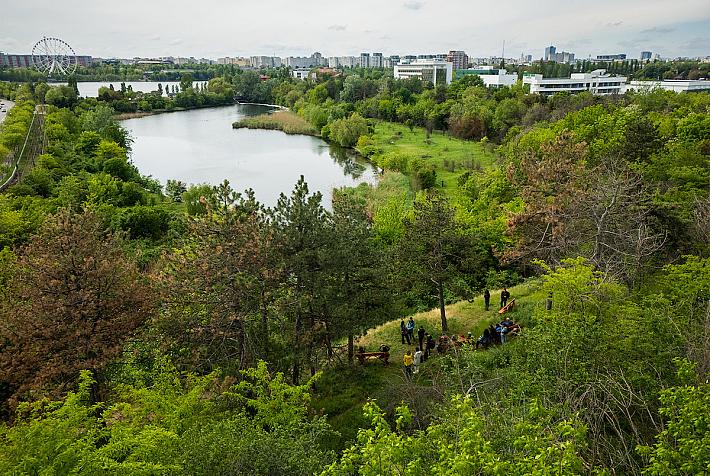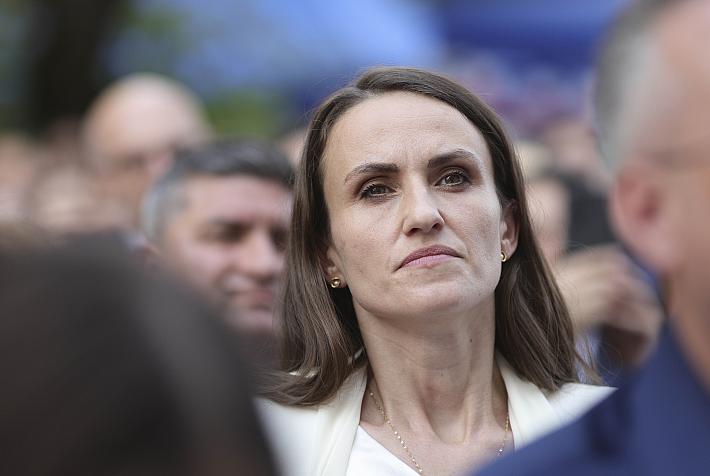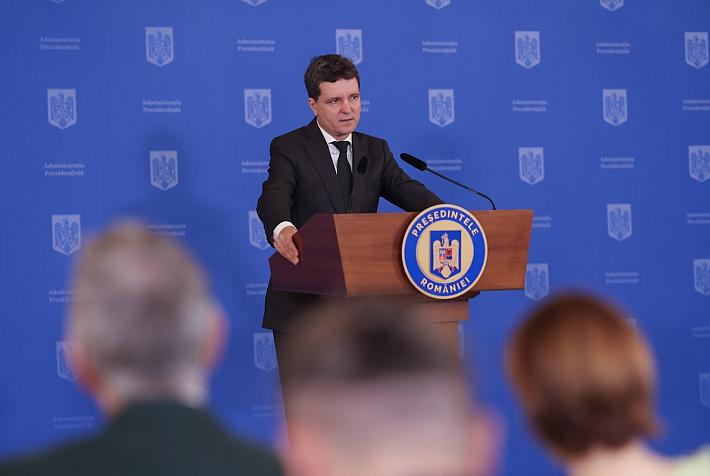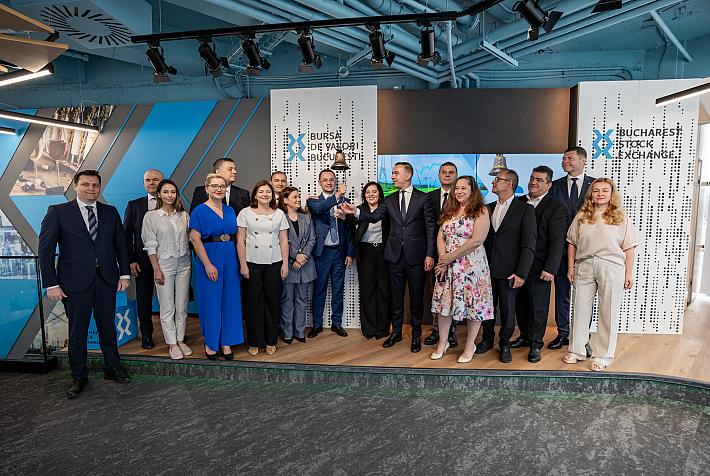Lost and found: People can help other people find lost items with this Romanian app
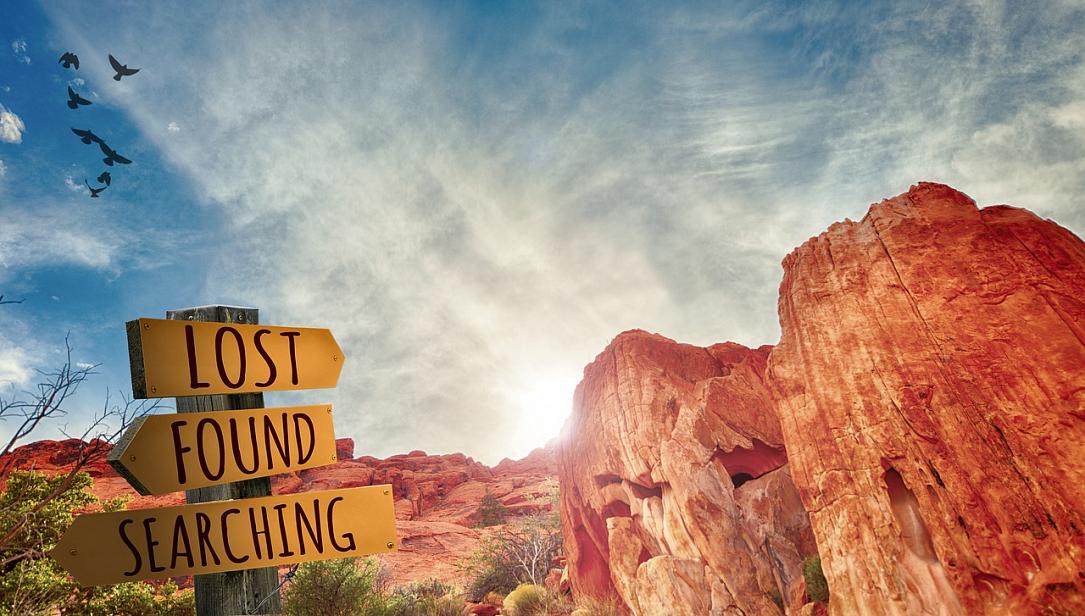
Losing something is never pleasant, whether it's that old scarf that has sentimental value or that new backpack, or even your pet. Add to that the possibility of never finding it, and the day is ruined. Two Romanians went through situations just like this and thus they thought they could develop something that would also help others find their lost items. That is how Traista was born, a free, community-based, location-specific mobile app.
Sorin Puscau and Dacian Manolache are the two Romanians behind the Traista app (traista is a Romanian word for bag or back sack), a virtual lost and found desk that can be used by everyone, from locals, travelers and pet owners to parents or students. Plus, users can find or share local deals with the help of this app, such as shopping or dining deals, as well as travel recommendations.
Both Sorin Puscau and Dacian Manolache were born in the Romanian mountain city of Brasov but moved to the U.S. many years ago, currently living in Arizona. Sorin moved to the States in 1993. He has experience in management, tech operations, banking operations and consulting. Dacian, a software developer, moved to the U.S. in 2003.
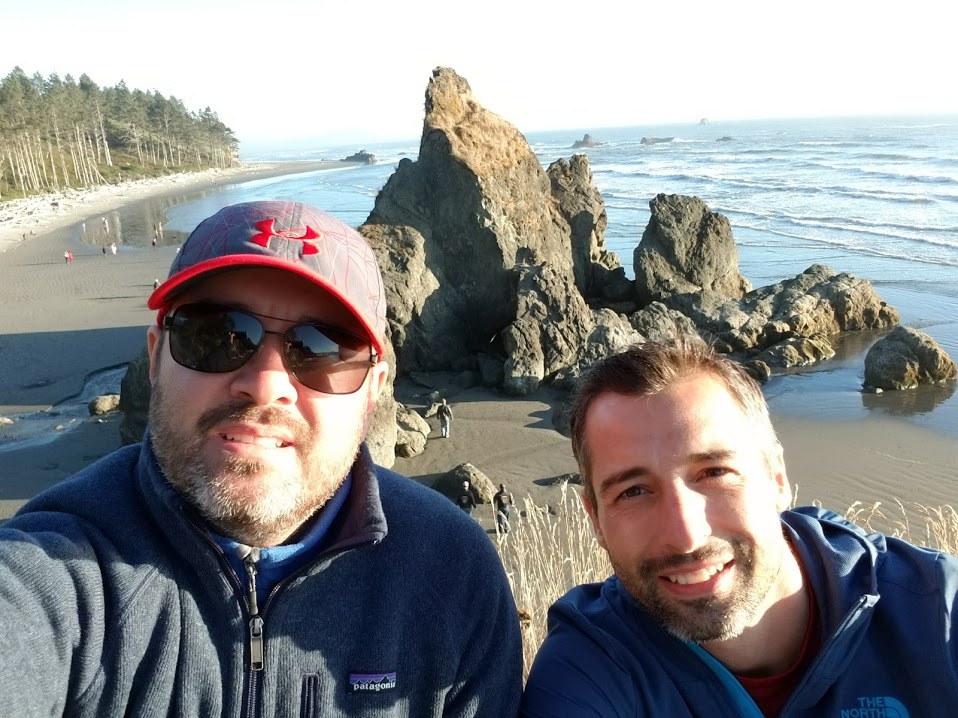 Sorin Puscau (left) and Dacian Manolache (right), the founders of the Traista app
Sorin Puscau (left) and Dacian Manolache (right), the founders of the Traista appFor both of them Traista is currently “a side project that’s growing to be a full time job after our regular full time jobs,” Sorin told Romania-insider.com. Sorin Puscau is Traista’s CEO, CFO, CMO, SMO, tester, proof reader, freelance workforce manager, contract negotiator and web design/developer while Dacian Manolache mainly handles the technical side, application development and updates.
The idea was born after Sorin lost, and never found, his wedding ring while on a family vacation with his friend Dacian and his family. Then, one of Sorin’s daughters forgot her teddy bear in the plane. Trying to figure out a better an easier way to track lost things, the two Romanians came up with the idea of a virtual lost & found office, a simple map-based community app where people could help other people find their things, all free of charge.
“Dacian and I started to discuss about the idea of a map-based community platform that didn’t depend on a display algorithm, nor one that was scroll feed based. Since lost items are relevant to the location found or lost, a user will look in that particular area. There are specialized forums and social groups, but the display algorithm isn’t helping the end user, they just improve ad revenue for those posting ads on there,” Sorin Puscau said.
The soft version of Traista was launched about two years ago. At present, the app is available in English and 17 other languages, including Romanian, and is available in both Android and iOS. As for the number of users, the app registered about 100,000 installs so far, and about half of those are still users. Active users are slightly less, with the highest use being registered in the U.S., UK, Romania, Russia, and more recently Vietnam.
The system is quite easy. The user just has to open the app, type in the name of the lost item, add an image and a reward, and pin on the map the location where the item was lost. Then, other users in that location can recover the lost item, the app allowing users to interact with each other. In addition, the Google maps integration in the app provides an easy method of getting to the pin with directions. Traista also features shopping or dining deals, connecting users with local businesses.
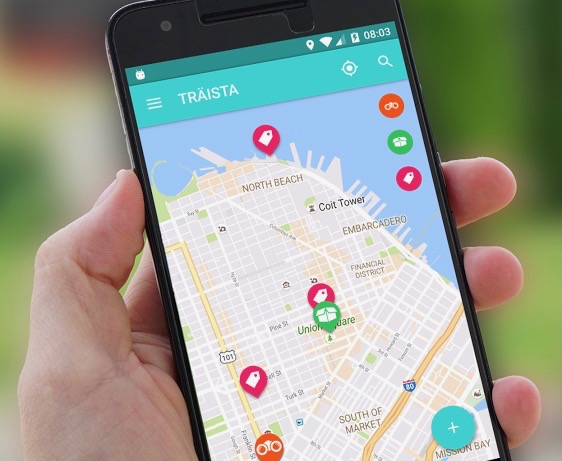 The users “can meet at a local place of business, hopefully one that posted a deal or maybe another user has posted a deal/promo at a place nearby where they can meet. In some cases, some will need to replace items while traveling, and hopefully the deal posts will help with local places to shop related to what they’ve lost,” Sorin Puscau explained.
The users “can meet at a local place of business, hopefully one that posted a deal or maybe another user has posted a deal/promo at a place nearby where they can meet. In some cases, some will need to replace items while traveling, and hopefully the deal posts will help with local places to shop related to what they’ve lost,” Sorin Puscau explained.
Future plans involve current discussions about adding two more map pins options and add the QR code option. The new pins will let users post events on the map, as well as garage/rummage sales.
Although they have been living in the U.S. for many years, Sorin and Dacian try to remain connected to the Romanian community there and back in Romania. They do that by keeping some of the Romanian customs and teaching their children Romanian. As for coming back to their home country, that is something they sometimes think about.
“Received a few offers and interviewed years ago with a few companies there, but nothing that convinced me I should move just yet. But you never know what the future holds. The tech sector is one of the best in that region of Europe, and generally speaking, daily matters have and still are going to improve in Romania. Matters that many have seen as an ultimate impeding factor to returning back,” Sorin Puscas said.
Irina Marica, irina.marica@romania-insider.com
(Opening photo: Pixabay.com; the other photos: courtesy of Sorin Puscau, Facebook / Traista)






